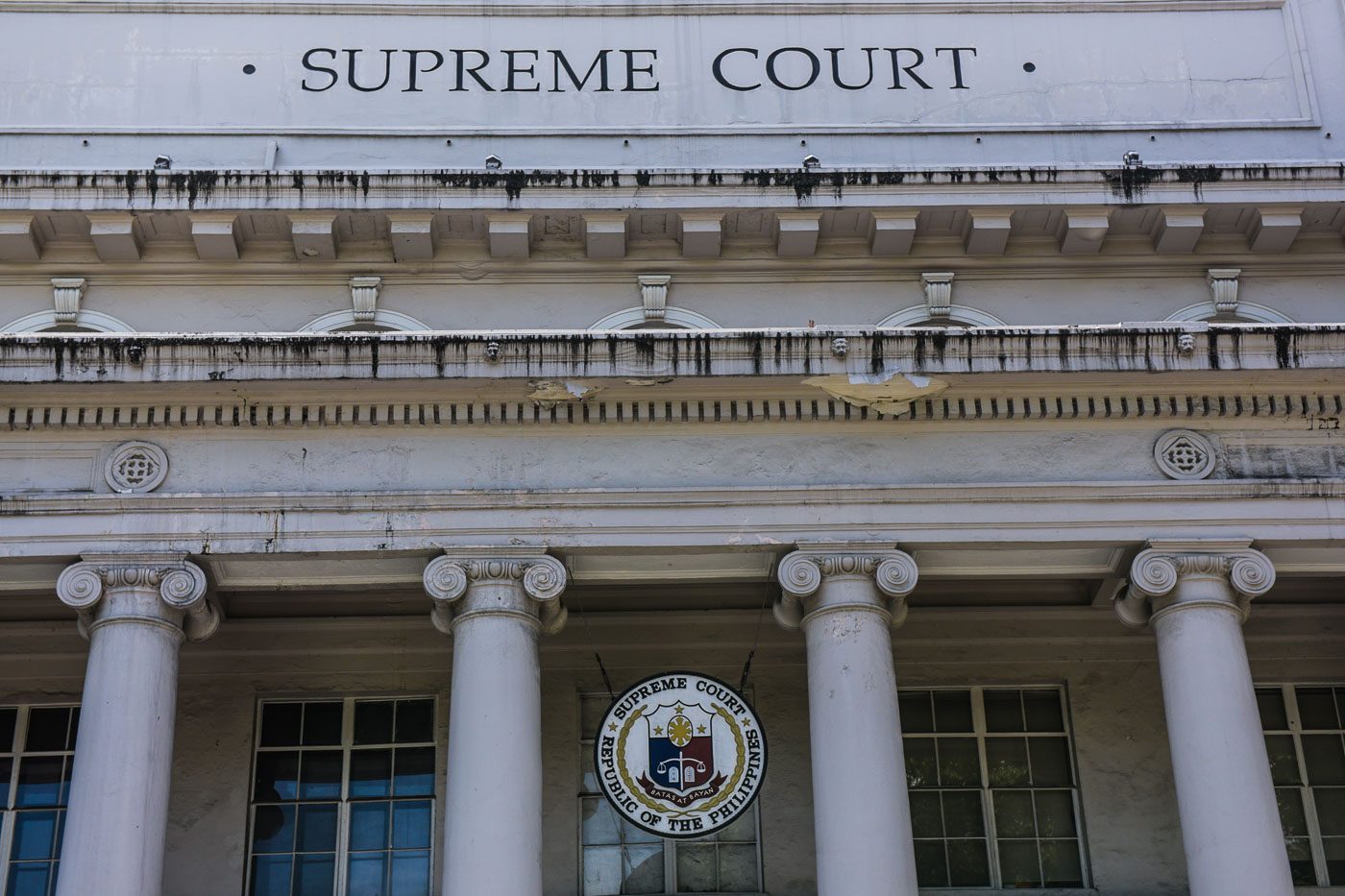SUMMARY
This is AI generated summarization, which may have errors. For context, always refer to the full article.

MANILA, Philippines – No decision is in sight from the Supreme Court (SC) to intervene, or at least to make guidelines, as the Philippines’ withdrawal from the International Criminal Court (ICC) becomes effective on March 17.
Sources from the Court said the ICC petitions are not on agenda for the en banc session on Tuesday, March 12.
Pending before the SC are two petitions that seek to invalidate President Rodrigo Duterte’s withdrawal from the ICC.
One of the petitioner groups, the Philippine Coalition for the ICC (PCICC), repeatedly pointed out during oral arguments last September that the South African High Court blocked its government’s withdrawal from the ICC for being unconstitutional.
The ICC recognizes that only national authorities can take back the withdrawal, in this case either the Duterte administration itself or the Supreme Court.
“What are at stake here are available remedies for citizens where domestic judicial and law enforcement authorities, by sheer inaction, become unable or unwilling to prosecute impunity,” said PCICC lead counsel Romel Bagares in a statement.
What happens to the war on drugs case?
The ICC has stood firm before that all proceedings which started before a withdrawal will remain in effect even after the withdrawal.
This means that ICC Prosecutor Fatou Bensouda can still continue her preliminary examinations into the high killings in Duterte’s campaign against drugs.
“If by lack of timely court action, the unilateral withdrawal by the Executive becomes effective we are still bound to cooperate with the ICC in respect of events and acts prior to the effective date of such withdrawal,” Bagares noted.
Bagares’ co-counsel Arpee Santiago said the effect of the withdrawal is that the prosecutor can no longer receive “new information” after March 17, so killings after that may no longer be examined.
“Any new information would have to be up until March 16, 2019, only because after March 17, 2019, any new cases, any new allegations for events occurring after March 17 (will no longer be taken),” Santiago said.
The prosecutor is evaluating 52 communications sent to them alleging crimes against humanity by the Duterte administration. The prosecutor will only move on to the investigation if she establishes jurisdiction, by determining that the Philippines is unable or unwilling to prosecute the killings by itself.
Data analyzed by Rappler show that the government has let thousands of killings go unsolved. (READ: What the ICC pullout case means for Duterte and the Supreme Court)
What can the Supreme Court do?
During oral arguments, Associate Justice Marvic Leonen, who appears to be the member-in-charge, seemed to be leaning towards Duterte’s decision to withdraw, citing both judicial restraint and strengthening local courts.
Human rights lawyers have raised concern that the Supreme Court can declare the Rome Statute void from the start which may invalidate the entire examinations, but Senior Associate Justice Antonio Carpio called that prediction “just noise.”
Because the withdrawal is already effective on March 17, the Supreme Court can say afterwards that the issue is already moot and academic.
There’s also a possibility that though they will decide belatedly, the Supreme Court can still tackle merits in its decision so that it can set guidelines for the future.
In 2017, Gambia’s new president reversed his predecessor’s withdrawal and rejoined his country to the ICC.
Human rights lawyers in the Philippines have appealed to stay in the ICC as insurance against impunity.
“By signing on to the Rome Statute, we agreed that the International Criminal Court, as an impartial tribunal, is the best available venue to discharge our international obligations in the event that for some or whatever reason, our own courts are unable to do so,” Bagares said.
“We pray that the High Court considers these in whatever ruling it may make on the twin petitions,” he added. – Rappler.com
Add a comment
How does this make you feel?
There are no comments yet. Add your comment to start the conversation.